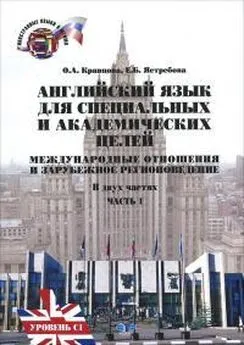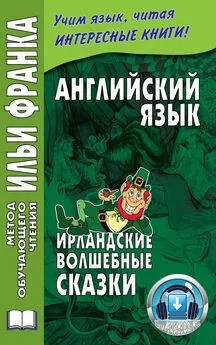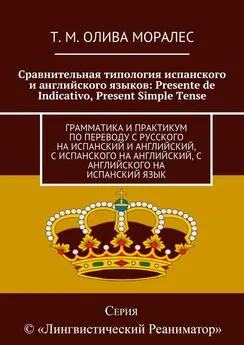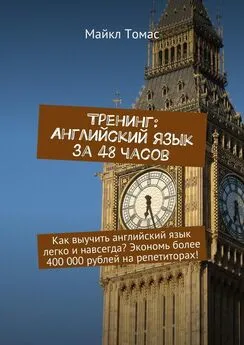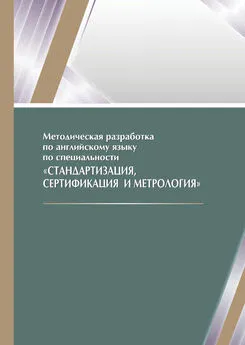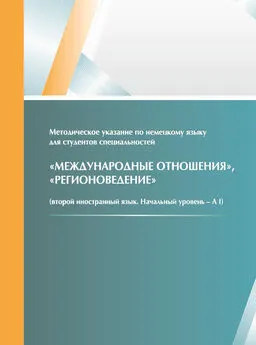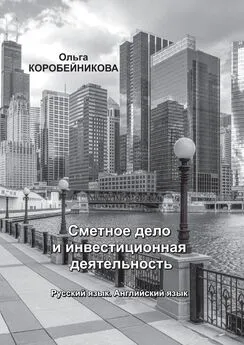Ольга Кравцова - Английский язык для специальных и академических целей: Международные отношения и зарубежное регионоведение. Часть 1
- Название:Английский язык для специальных и академических целей: Международные отношения и зарубежное регионоведение. Часть 1
- Автор:
- Жанр:
- Издательство:МГИМО-Университет
- Год:2015
- ISBN:978-5-9228-1210-8
- Рейтинг:
- Избранное:Добавить в избранное
-
Отзывы:
-
Ваша оценка:
Ольга Кравцова - Английский язык для специальных и академических целей: Международные отношения и зарубежное регионоведение. Часть 1 краткое содержание
Адресовано студентам четвертого курса факультетов и отделений международных отношений и зарубежного регионоведения.
Английский язык для специальных и академических целей: Международные отношения и зарубежное регионоведение. Часть 1 - читать онлайн бесплатно полную версию (весь текст целиком)
Интервал:
Закладка:
Why we hope the people of Scotland will vote to stay in the union
Jul 12th 2014 | the Economist http://www.economist.com/news/leaders/21606832-why-we-hope-people-scotland-will-vote-stay-union-dont-leave-us-way
BRITAIN does not feel like a nation on the verge of cracking up. Many have clutched patriotic flags and wept this summer — but most of them were fans of the England football team, distressed by its rapid exit from the World Cup, not activists demonstrating for and against the breakup of their country. Yet a 307-year-old union, which once ruled a third of humanity and still serves as a role-model to many, could be on the verge of dissolution, because the people of Scotland will vote on independence in a referendum on September 18th.
Opinion polls suggest the Scots will decide against leaving, but it is the nationalists who have fire in their bellies, and Alex Salmond, the leader of the Scottish National Party (SNP), is a strong finisher. Even a narrow victory for the status quo would be the biggest blow to the United Kingdom since 1922, when the Irish Free State was born. The campaign has been a bad-tempered one, marked by growing Scottish anger at English complacency and indifference while English resentment of Scottish whingeing and freeloading has risen: only a strong vote for the union will bury this issue.
If the Scots vote to leave, they should of course be allowed to, with Britain's blessing. A desire for self-determination is a strong basis for a claim to nationhood, and there is no reason to think that an independent Scotland would be a disaster, any more than an independent Ireland has been.
But The Economist, itself a product of the Caledonian liberalism of Adam Smith and David Hume, hopes the Scots will decide to stay. That is partly because we believe that a break-up would benefit nobody: on most measures the certain costs for people on both sides of the border far outweigh the uncertain gains. But it is also because much would be lost. Despite the occasional appearance of muddle, there is a point to the union, and one about which liberals should feel passionate.
Strong arguments are needed to justify a step as big as breaking up a nation. Scottish nationalists argue that an independent Scotland would be more prosperous and more democratic.
On economics, the nationalists say that Scots will be £1,000 a year better-off per head if they go it alone. That number, however, is based on implausible assumptions about the oil price, Scotland's debt burden, demography and productivity. The British government's estimate that Scots would be £1,400 a year better off per head if they stay in is based on more realistic assumptions. Scotland's population is older and sicker than the British average, and productivity 11% lower than that of the rest of Britain. As a result, the state spends around £1,200 more per head on Scots than on the average Briton. Depending on what happens to the oil price, North Sea oil could more or less cover those costs in the short term, but the oil is running out.
It is, of course, possible that independence would cure Scotland's entitlement culture 14 14 The term “entitlement culture” suggests that many people now have highly unreasonable expectations about what they are entitled to.
and revive its entrepreneurial side. If either of its two dominant parties — the SNP and Labour — were disciples of Adam Smith that would be plausible. But their statist philosophies are more likely to drive Edinburgh's fund managers, Aberdeen's oil-services engineers and other talented Scots south. Independence would also impose one-off costs: a new Scottish state would have to set up an army, a welfare system, a currency and much else.
The argument that an independent Scotland would be more democratic is a stronger one, for Scotland and England have grown apart. Two generations ago, there were nearly as many Conservative MPs as Labour ones in Scotland, but the Scots have not forgiven the Tories for the impact of Thatcherism on their heavily industrial economy. Nationalist protesters recently donned panda outfits to remind David Cameron, the Conservative prime minister, that there are more pandas in
Unit I. UK: from Empire to Democracy
Unit I. UK: from Empire to Democracy
Edinburgh zoo (two) than there are Tory MPs in Scotland (one). Encouraged by devolution under Tony Blair and cash from Westminster, Scottish social policies have diverged from English ones. University education is free for Scottish students, but not English or Welsh ones; the state pays for a higher proportion of old people's care in Scotland than it does in England and Wales; Scotland has not followed England in freeing schools from bureaucratic constraints.
Yet healthy democracies are flexible enough to deal with regional differences, of which there are plenty within the rest of Britain. The north-east of England and Wales, which both vote Labour, also rail against the Westminster government, just as the Tory stockbroker belt does when Labour is in power. Some of the southern impositions that nationalists object to, such as a “bedroom tax” designed to nudge subsidised tenants out of unnecessarily large houses, are relatively trivial. Others, like Margaret Thatcher's poll tax, are historical.
Nor does Britain's political set-up deprive the Scots of power. The last two British prime ministers, Tony Blair and Gordon Brown, were born north of the border. Scotland has a disproportionately large number of MPs at Westminster. Edinburgh already has an independent legal system and its parliament has power over a wide range of policy areas, including health, education and housing. Its leaders have not exercised their right to vary income tax: that hardly suggests a Scottish administration straining at a leash held tight by Westminster.
A democratic, peaceful, well-governed nation state is a blessing which should not be casually thrown away. That is a strong negative case against change. But there is also a positive argument, to which the campaign against Scottish independence has struggled to give voice: the idea of union.
The United Kingdom embodies the belief that people with distinct histories and identities can live together, and that their diversity makes their culture, their economy and their polity stronger. Tellingly, most members of ethnic minorities describe themselves as British rather than English or Scottish; they instinctively recognise the capacious, liberal identity — one which rests not on narrow nationalism, but on an enlightened concept of nationhood — that the union offers. In a world plagued by ethnic hatred, cultural prejudice and religious violence, that venerable idea should count for more than the real but fleeting disappointments and sense of alienation that the Scots have experienced in recent decades.
If this ideal were undermined by Britain's dissolution, and the country's voice itself were weakened, the amour propre of Britons would not be the only victim. As a permanent member of the UN Security Council and a big noise in the IMF, the G7 and the European Union, Britain can make itself heard in support of values such as human rights, democracy, freedom of speech, the rule of law and clean government that are threatened by the rise of states and ideologies that do not share them. If Scotland were to push off, neither it nor residual Britain would have as much influence as they do today, and the world would be the poorer for it.
Although this newspaper believes that, for all these reasons, the union is worth preserving, we also think it needs changing. As a political expression of liberal values and attitudes, it would be more credible if it were not so centralised. The devolution of powers to Scotland has been a mild extortion racket; and elsewhere the flow has gone to Westminster rather than away from it. But if diverse peoples are to be bound together, they must be given plenty of slack. So instead of trying to buy Scottish votes with more cash, Mr Cameron should devolve far more power to all Britain's cities and regions.
States cannot easily split their way to happiness, and working out how to accommodate differences can improve them. It makes them more tolerant, pluralist and open, and teaches central governments how to relinquish power. When nations cannot bear to hold together, they must of course separate. But Britain has not reached that point. Scottish nationalists like to say, cheerfully, that their nation is capable of standing on its own. It certainly is. That doesn't mean it should.
1. Caledonian is a geographical term used to refer to places, species, or items in or from Scotland, or particularly the Scottish Highlands. It derives from Caledonia, the Roman name for the area of modern Scotland.
2. Adam Smith (16 June 1723 — 17 July 1790) and David Hume (26 April 1711 — 25 August 1776) — Scottish philosophers and economists, the key figures of the Scottish Enlightenment. Adam Smith laid the foundations of the classical free market economic theory.
3. Alexander Elliot Anderson Salmond (English pronunciation: /'samand/; born 31 December 1954) is a Scottish politician who served as the fourth First Minister of Scotland from 2007 to 2014. He was the leader of the Scottish National Party(SNP) for over twenty years, having served for two terms, firstly from 1990 to 2000 and subsequently from 2004 to 2014. Politically, Salmond is one of the foremost proponents of Scottish independence, repeatedly calling for a referendum on the issue. The day after the 2014 independence referendum, at which a majority of the Scottish people voted to remain as part of the United Kingdom, Salmond announced his intention not to stand for re-election as leader of the SNP at the SNP National Conference in November, and to resign as First Minister thereafter. He was succeeded in both capacities by Nicola Sturgeon.
4. Anthony Charles Lynton Blair (born 6 May 1953) is a British Labour Party politician and philanthropist. Blair served as the Prime Minister of the United Kingdom from 1997 to 2007. He was the Member of Parliament (MP) for Sedgefield from 1983 to 2007 and Leader of the Labour Party from 1994 to 2007. Blair led Labour to a landslide victory in the 1997 general election, winning 418 seats, the most the party has ever held. The party went on to win two more elections under his leadership: in 2001, in which it won another landslide victory, and in 2005, with a reduced majority. In the first years of the New Labour government, Blair's government introduced the National Minimum Wage Act, Human Rights Act and Freedom of Information Act, and carried out devolution, establishing the Scottish Parliament, the National Assembly for Wales, and the Northern Ireland Assembly, fulfilling four of the promises in its 1997 manifesto.
5. James Gordon Brown (born 20 February 1951) is a British Labour Party politician who was the Prime Minister of the United Kingdom and Leader of the Labour Party from 2007 until 2010. He previously served as Chancellor of the Exchequer in the Labour Government from 1997 to 2007. Brown has been a Member of Parliament (MP) since 1983, first for Dunfermline East and currently for Kirkcaldy and Cowdenbeath.
After initial rises in opinion polls following Brown becoming Prime Minister, Labour's popularity declined with the onset of a recession in 2008, leading to poor results in the local and European elections in 2009.
On 10 May 2010, Brown announced he would stand down as leader of the Labour Party, and instructed the party to put into motion the processes to elect a new leader. On 11 May, he officially resigned as Prime Minister and Leader of the Labour Party. He was succeeded as Prime Minister by David Cameron, and as Leader of the Labour Party by Ed Miliband.
Читать дальшеИнтервал:
Закладка:
